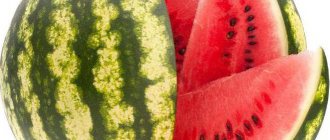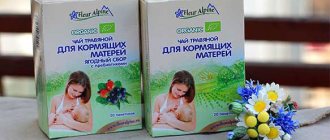Beneficial properties of fruits and introduction to the diet
An infant needs a sufficient amount of vitamins and microelements. The usefulness of breast milk and the regeneration of the body after childbirth depends on the sufficient saturation of a person with beneficial microorganisms; the oil tree product contains everything necessary for the complete resumption of the body’s functioning. Beneficial components contained in the product: - monoenoic fatty acids, which increase brain activity, the condition of the skin, improve heart function, help maintain human immunity, and normalize the functioning of genital hormones; -vitamin E helps in the absorption of calcium and carotene; - a powerful antioxidant (polyphenol) reduces the risk of disruptions in the functioning of human organ systems; -magnesium is a powerful substance for maintaining the nervous system; -calcium restores bone tissue. An infant is very sensitive to chemicals added to olive fruits. A high-quality olive tree product is considered a dietary food, and is also extremely beneficial and non-allergic for mothers with breastfeeding. Breastfeeding obliges mothers to make a list of products; olive fruits can be included and consumed in the first or second month of the child’s life, if the expectant mother ate the product before giving birth. Having not used it before, it is better not to take risks and wait until the infant grows up to 3-4 months. A breastfeeding baby will react to a new product within 48 hours. A young mother should check whether it causes allergies in the baby. If everything is in order, then a few olives a couple of times during the week will help a nursing woman recover.
Recipes for other salads for nursing mothers
Beetroot
Review of the most popular vitamin supplements for children from Garden of Life
How can Earth Mama products help new parents care for their babies?
Dong Quai is an amazing plant that helps maintain youth in the female body.
Vitamin complexes, probiotics, omega-3 from Garden of Life, designed specifically for pregnant women
Boiled beet salad is very healthy for both nursing mothers and babies. After all, beets contain a huge amount of nutrients and vitamins; this root vegetable is an excellent immunomodulator.
The recipe for beet salad is very simple:
Take 1 baked or boiled beetroot, grate it, add 1 teaspoon of sunflower oil, salt to taste.
Fruit
Fruit salads are also very beneficial for nursing women.
We present a recipe for a simple salad with the addition of fruits, which mothers can eat after 3 months of lactation. We will need:
- peeled green apple;
- feta cheese;
Cut everything into small pieces, add boiled peas. You can season it with olive oil.
Vitamin
Ingredients:
- one small zucchini;
- one bunch of lettuce leaves;
- kiwi 1 piece;
- curd cheese;
- hard cheese.
Cut all the ingredients into pieces, add a tablespoon of olive or sunflower oil and lemon juice, and salt to taste. All this can be sprinkled with chopped nuts.
Nutritious salad
We take 1 bunch of clean lettuce leaves, do not cut them, but tear the lettuce into pieces with our hands. Cut 1 sweet pepper into pieces, add 1 can of anchovies or tuna, cut 1 boiled egg into cubes. Season with low-fat sour cream.
The recipe for this salad is simple and does not take much time from mothers, but it is very healthy and satisfying, and is also enriched with amino acids and proteins.
The dangers of canned food
Exclusively Russian people divide the fruits of the olive tree into olives (green skin) and olives (black skin). Green olive is a special variety that has a green or dark brown color. Today, technical canning of olives turns the truly unripe fruits of the tree black.
Interesting! There is a misconception that an olive is an unripe olive. In Russia they don’t know that these are the same product.
Fresh olives have an unpleasant bitter taste, so people try to eat them in canned form. The process of decomposition of natural substances takes several months, in turn this reduces the speed of production and the profit of the manufacturer. To reduce production time, by aging the fruits in a chemical alkaline solution, the unpleasant bitterness disappears. To give olives a beautiful black color, caustic soda is saturated with iron gluconate. Therefore, many canned olives found on the shelves of all stores can cause dangerous harm to your baby. Substances with chemicals negatively affect the digestion of an infant, brain activity and the body as a whole. The preservative E579 causes disruption of the heart, liver and kidneys. Caustic soda causes corrosion of the skin and mucous membranes.
Is it possible to eat olives when breastfeeding a newborn?
Olives are considered healthy; they have a positive effect on the human body, but not many people know whether a nursing mother can eat them in the first and second months after giving birth.
If the product is prepared in good faith, then it can be eaten during breastfeeding without harm to health, but unfortunately, store shelves are filled with low-class goods.
Violation of the technology for preparing the product leads to the fact that olives are unable to bring anything but harm to the body of a woman and a newborn.
Beneficial features
Each fruit contains a sufficient amount of vitamins and microelements. Allowing you to speed up the process of recovery of the mother’s body after childbirth and improve the quality of breast milk. The list of useful qualities includes:
- restoration of the condition of the skin, hair and nails;
- strengthening the immune system;
- regulation of the process of production of sex hormones;
- positive effect on the state of the cardiovascular system, prevention of atherosclerosis;
- restoration of the central nervous system;
- strengthening bone tissue after pregnancy.
Fruits devoid of chemical compounds can be safely introduced into the diet. If the mother consumed them during pregnancy, they can be included in the menu in the first month. If meeting for the first time, it is better to wait until the baby is 3 months old.
Attention!
When tasting the product you need to make sure. That the child does not have an allergic reaction. For the first time, the mother eats only 1 fruit and observes the child’s reaction for 24 hours. If allergies and gastrointestinal upset do not appear, olives can be eaten.
The dangers of canned food
Fresh fruits are bitter, so they are eaten only pickled. Natural preparation requires the manufacturer several months, but this is not an advantageous condition. The company reduces the cost of this process by simply soaking the product in an alkali solution.
It is interesting to note that unscrupulous companies sell olives under the guise of olives. To dye it black, iron gluconate is added to the alkali. The fruit is soaked in the solution and painted.
Is it possible and worth it to eat such olives during breastfeeding - definitely not, they are dangerous.
When carcinogens enter the baby's body through mother's milk, the baby experiences intoxication and damage to the brain and internal organs occurs.
Side effects
Side effects occur when eating a low-quality product. The list of possible ones includes:
- flatulence;
- abdominal pain;
- nausea and vomiting;
- diarrhea;
- dizziness;
- allergic reactions.
With prolonged use, more dangerous complications are possible:
- renal and liver failure;
- disturbances in brain function;
- lesions of the mucous membranes of the gastrointestinal tract;
- heart rhythm disturbances.
Long-term use of a product prepared by an unscrupulous manufacturer is dangerous to the health and life of the patient. A one-time use can result in food poisoning, and use for several months can result in ulcerative lesions of the gastrointestinal tract.
How to choose a safe product and distinguish it from harmful ones
A product that can benefit a nursing woman and a newborn must meet the following criteria:
- sold in transparent packaging (jar or special film) - allows you to evaluate the size and type of fruit;
- olives cannot be coal black; this color indicates additional processing;
- when using adequate cooking methods, the product turns out moderately salty;
- high-quality pitted olives cannot be dark, because the kernel is removed only from unripe fruits;
- You should not buy the product by weight; it is better to prefer packaged options.
Attention!
The cost of quality fruits is approximately 2 times higher. There should be a notice on the can stating that the product is prepared without the use of chemicals.
A nursing mother can eat olives during lactation, but the main point to pay attention to is the quality of the product. If the fruits do not meet the standards, they pose a danger to the mother and baby. Due to the penetration of harmful substances into the body, symptoms of intoxication occur, and with prolonged use, damage to internal organs is possible.
Source: //minutamami.ru/olivki-pri-grudnom-vskarmlivanii
How to choose a safe product
What you need to pay attention to when choosing a product: -price of the product; - the jar must bear the signature “natural fermentation” or “without chemical treatment”; -if it contains iron gluconate or otherwise E579, you can without a doubt put the jar back on the shelf; - with natural fermentation, when eating olives you will experience a juicier taste and softer fruits; - olives in a transparent glass jar should contain clear brine. It is worth paying special attention to expiration dates; fruits can maintain quality for a long time, but consuming a product with an expired or suitable expiration date is dangerous for your health!
Is it possible to eat olives while breastfeeding – My child
This typical Mediterranean gift of nature occupies a relatively strong place in domestic kitchens. But many do not know that it also has significant medicinal properties. First of all, the beneficial properties of canned olives include excellent detoxification abilities and ridding the body of unnecessary and harmful substances.
Besides the benefits, do canned olives have any negative effects or harm? What should you keep in mind when eating them?
Healthy fats
The most important factor that determines the health benefits of canned olives is the nature of the fat they contain. Fat is perceived by many as a substance that is absolutely useless, too rich in energy and, therefore, harmful.
But fat and fat are different. Its main building blocks are fatty acids. There are many different types of fatty acids, chemically they can be divided into:
- Polyunsaturated.
- Monounsaturated.
- Saturated.
Saturated fatty acids are predominantly found in animal products, and their excessive consumption leads to increased blood cholesterol levels and the development of cardiovascular diseases.
On the contrary, unsaturated fatty acids are mainly found in plant foods (oils), and have a positive effect on the degradation of cholesterol in the blood vessels and the overall decrease in its level in the blood.
Monounsaturated fatty acids have the greatest ability to reduce the level of bad cholesterol in the blood. The most important source of these substances is oleic acid, which is naturally present in olives in the highest quantities.
For this reason, despite their higher fat content, they meet the nutritional requirements of a modern person trying to follow the rules of a healthy lifestyle.
The average amount of fat in olives ranges from 10% (green) to 30% (black). An important fact that should not be forgotten is the high sodium content (salt brine for preservation).
It is because of this that, in addition to the benefits, canned olives can also be harmful to the body, so their consumption in unlimited quantities is not recommended.
However, due to their extremely high content of healthy oleic acid, they are ideal for enhancing the flavor of various dishes as a substitute for spices or salt.
Vitamin A, E and other important substances
The main vitamin that determines the benefits of black canned olives (as well as green ones) is vitamin A, which helps improve the condition of the eyes, skin and strengthen the immune system.
You should pay attention to consuming enough vitamin A throughout the year, but in autumn and spring, when the body is easily vulnerable, increased intake is especially important.
Vitamin E plays an important role in the prevention of heart disease. At the cellular level, it can slow down the aging process. It provides benefits for women in particular by preventing premature skin aging.
Of the alkali metals that are also important for the body, the healing properties of olives are potassium, which reduces muscle tension, blood pressure and fatigue, and sodium, which maintains ionic balance and protects the body from excessive fluid loss.
The next factor that determines the health benefits of black and green olives is the iron content, an integral component of proteins that plays a role in the transport of oxygen.
Another element that provides the benefits of fruits is iodine, a trace element contained in 2/3 of thyroid hormones. In nature, it is a very rare element, found only in compounds.
Its deficiency in the body manifests itself in various signs. The most common are, for example, unreasonable weight gain, constipation, brittle hair and nails, and depression.
Olives are also valued in folk medicine for their content of some important minerals. For example, calcium is the main building block of bones and teeth and is essential for the prevention of osteoporosis.
Another valuable mineral is phosphorus, which is also necessary for the proper growth of bones and teeth, but at the same time promotes tissue growth. It is important for the brain, nerve tissue and heart, where it provides support for stable contractions.
Olives contain polyphenols, water-soluble antioxidants that are effective against bacteria and fungi. Another amazing feature is their ability to dissolve mucus in the body.
For people who have been eating processed foods and dairy products for years, this is very important. Olives are 3 times more effective at dissolving mucus than the recommended oranges.
Common Questions
There are many questions regarding the benefits and harms of olives for the body. Let's look at the most popular ones.
- The first question relates to storage - is it possible to freeze fruits? Freezing, although not prohibited, is also not a recommended storage method. Once defrosted, they will become soft, shapeless and tasteless.
- The following questions relate to the consumption of olives. Can pregnant women eat olives? Pregnancy is not a contraindication to the consumption of the healthy fruit, however, due to its salt content and, therefore, the ability to increase the risk of edema, it is not recommended in the last trimester. In addition, you should pay attention to the quantity - for pregnant women it is no more than 5-10 pieces per day, 2-3 times a week.
- Is it possible to eat healthy fruits while breastfeeding? Can. Moreover, it is allowed to include them in the diet already after 1 month after birth! However, due to the high fat content (albeit healthy), you should not exceed a serving of 10 pieces per day.
- Is it possible to give olives to children? Here the opinions of doctors and nutritionists differ radically. While some allow children to consume olives from an early age (about 3 years), others are categorically against their inclusion in children's menus until the age of 10. Therefore, most likely, in this regard it is better to be guided by the “golden mean” rule, i.e. include olives in baby food at the age of about 6-7 years. However, most children are, to put it mildly, underwhelmed by their taste.
Health Benefits
The beneficial qualities of olives are varied. They cover a number of organs and systems and have a positive effect on various diseases and disorders.
- Increasing the body's defenses.
- Protecting cells from cancerous growth.
- Protection against free radicals.
- Cell restoration.
- Antiseptic effects – protection against infections and inflammations.
- Treatment of skin lesions and diseases.
- Digestive support.
- Acceleration of metabolism.
- Ensuring healthy and dense bone tissue.
- Preventing osteoporosis.
- Improved bowel movements
- Reducing cholesterol levels.
- Cleansing blood vessels of bad fats.
- Cancer prevention.
- Prevention of cardiovascular diseases.
- Prevention of kidney and urinary tract diseases.
- Cleansing the kidneys and urinary tract.
- Body hydration.
- Detoxification of the body.
- Supports healthy skin.
- Slowing down the signs of aging.
Energy value (100 g):
Nutritional value (g/100g):
- protein – 1.25,
- carbohydrates – 4.3,
- fat – 11,
- fiber – 3.8,
- water – 78.
Minerals (mg/100 g):
- iron – 0.75,
- selenium – 0.001,
- calcium – 54,
- copper – 0.22,
- magnesium – 10.7,
- omega-3 – 98,
- omega-6 – 1245,
- phosphorus – 3.8,
- potassium – 41.5,
- lutein – 0.5,
- sodium – 1450,
- beta-carotene – 0.224.
Vitamins (mg/100 g):
- A – 390 IU,
- folic acid – 0.04,
- B3 – 0.4,
- K – 0.018,
- E – 4.2.
Weight loss
Olives are a product recommended for weight loss. Despite its higher fat content, it is beneficial. Olives help speed up metabolism, improve digestion, boost immunity and protect the body from diseases.
- By consuming them in addition to a proper balanced diet 4-5 times a week, 5 pieces each, in addition to improving your health, you will gain a slimmer waist (don’t forget about plenty of movement).
- Haemorrhoids
- For hemorrhoids, it is recommended to eat 5-10 pieces of fruit per day, along with oil compresses (soak a cotton swab in olive oil and insert into the rectum for half an hour).
- Stones in the kidneys
To get rid of kidney stones, it is recommended to eat 20-30 olives per month. But, pay attention: along with the bones!
- Heartburn
- Bones will also help with heartburn - you should eat 3-4 of them with food.
- Constipation
5-10 fruits (or 1 tablespoon of oil) per day will help relieve constipation.
Pressure
About 7 fruits per day can reduce blood pressure and stabilize it. However, to date it is not known which substances contained in them have such abilities.
Prostatitis
Olives can provide significant benefits for men as well. Regular inclusion of them in the diet will prevent and contribute to the treatment of prostatitis. For this, only 3-4 pieces are enough, but daily.
Vitamin of beauty and strength
We are talking about the above-mentioned vitamin E, which slows down the aging process of cells and tissues. It is considered an effective antioxidant, affects the production of red blood cells, restoration and growth of muscle mass, and increases female fertility. It is also useful for men, because... is able to increase potency and activity of the sex glands.
Anti-cancer effect
A survey conducted several years ago showed that people from Northern Europe (particularly Italians and Spaniards) had increased concentrations of oxidation products in their urine, which are considered to be an indicator of processes that contribute to the development of cancer.
However, after 3 weeks of daily consumption of 25 g of olives (about 7 pieces), this amount decreased significantly. The strong anti-cancer effect, according to experts, is due to the content of phenols.
Differences between olives
If you think that olives come from a different type of tree than olives, you are wrong. In our area, green fruits are called olives, and black olives are called olives. However, the difference between olives and black olives lies only in the ripeness of the fruit.
Green ones are softer because they are not ripe at the time of picking. Black ones are characterized by softness and a sweeter taste.
Despite the fact that we are talking about a product practically devoid of contraindications, in order to get maximum benefit from it and not harm, it is recommended not to exceed the daily consumed amount (5-10 pieces) and eat with caution in the last trimester of pregnancy.
Source: //pavsanatoriy.ru/prochee/mozhno-li-olivki-i-masliny-pri-grudnom-vskarmlivanii.html










